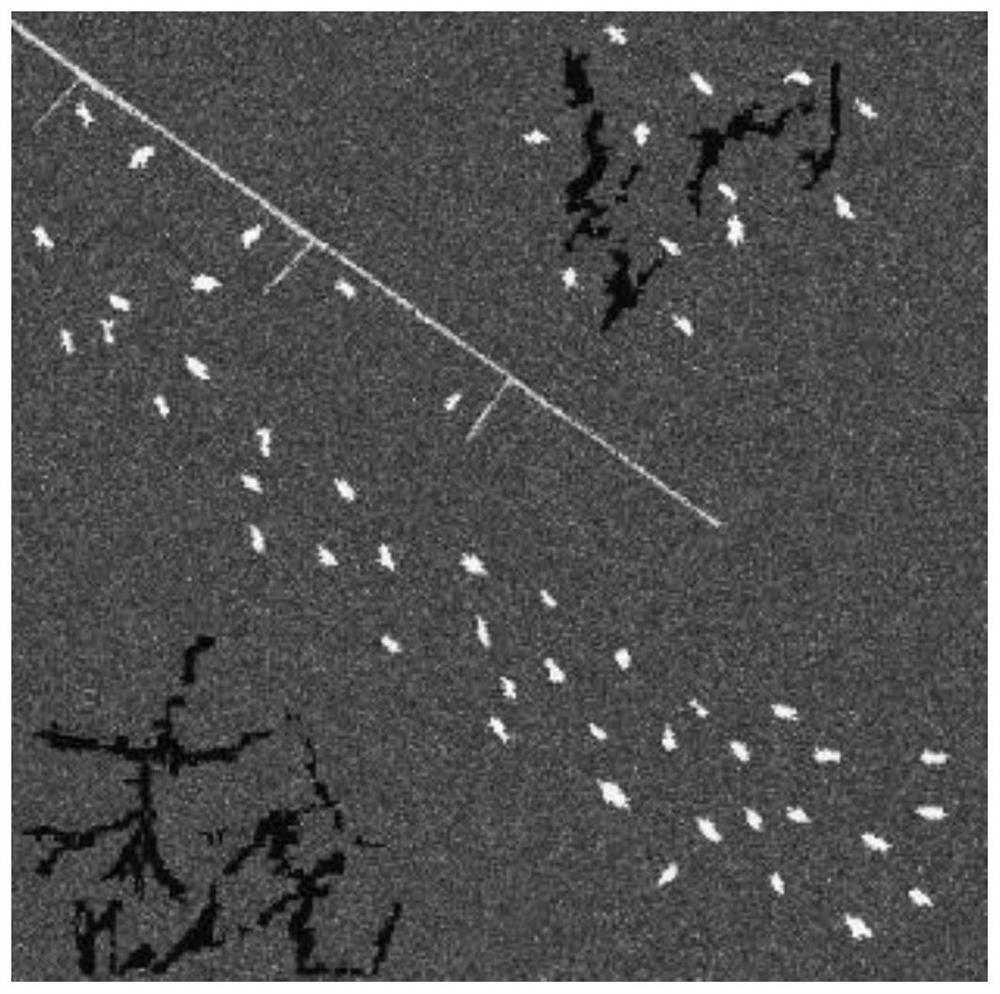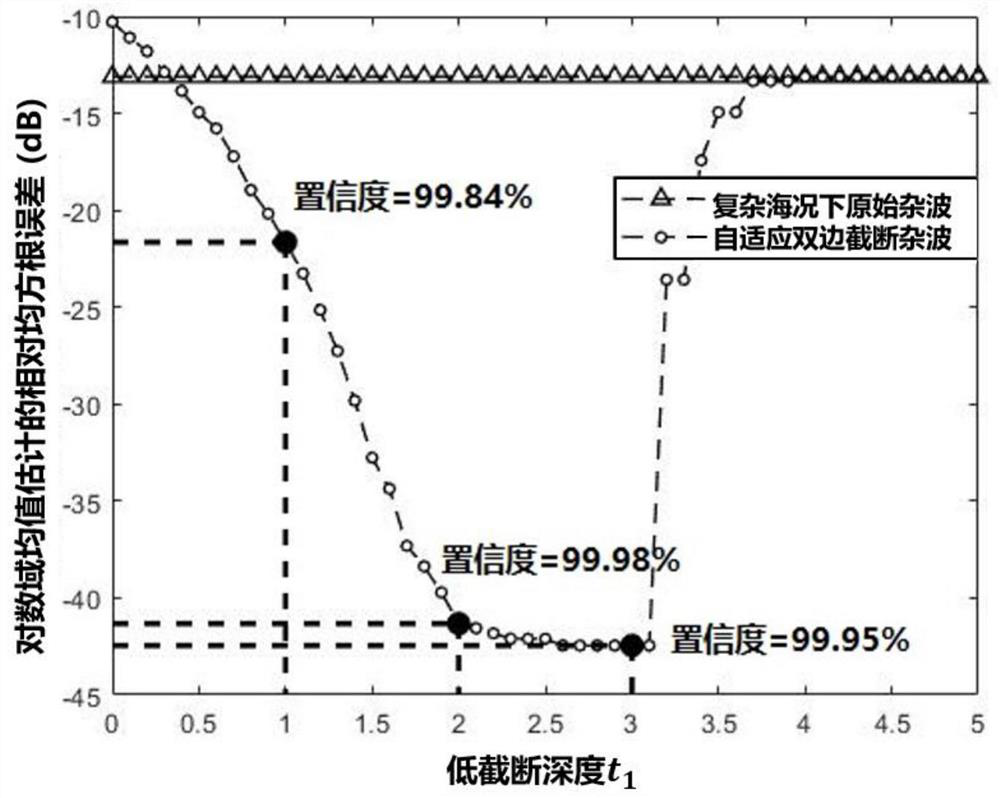Ship cfar detection method based on bilateral truncated statistics in sar images
A statistical feature and image technology, applied in the field of SAR image target detection, can solve the problems of real sea clutter sample removal, poor parameter estimation accuracy, complex process, etc., to improve the detection performance, improve the goodness of fit, and improve the calculation. The effect of efficiency
- Summary
- Abstract
- Description
- Claims
- Application Information
AI Technical Summary
Problems solved by technology
Method used
Image
Examples
Embodiment Construction
[0050] In this example, if figure 1 As shown, a SAR image ship CFAR detection method based on bilateral truncated statistical properties includes the following steps:
[0051] Step 1: Acquire a SAR image, and set a local sliding window composed of the target window and the background window, and calculate the logarithmic domain mean μ of all pixels of the SAR image in the background window B_ln and the log-domain standard deviation σ B_ln , and then calculate the variation index VI according to the formula (1), and obtain the truncation rule shown in the formula (2), so as to remove the pixels in the background window that do not satisfy the formula (2), and obtain the truncated real sea clutter pixel set express The gray value of the i-th pixel in , i∈[1,n], n represents the number of pixels:
[0052]
[0053] mu B_ln -t 1 ·σ B_ln B )≤μ B_ln +exp(γ / VI)·σ B_ln (2)
[0054] In formula (2), t 1 is the low truncation depth, γ is the weight of the high truncation d...
PUM
 Login to View More
Login to View More Abstract
Description
Claims
Application Information
 Login to View More
Login to View More - R&D
- Intellectual Property
- Life Sciences
- Materials
- Tech Scout
- Unparalleled Data Quality
- Higher Quality Content
- 60% Fewer Hallucinations
Browse by: Latest US Patents, China's latest patents, Technical Efficacy Thesaurus, Application Domain, Technology Topic, Popular Technical Reports.
© 2025 PatSnap. All rights reserved.Legal|Privacy policy|Modern Slavery Act Transparency Statement|Sitemap|About US| Contact US: help@patsnap.com



